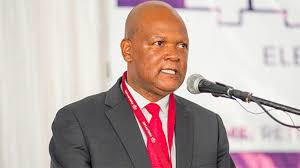
THE rules of Zimbabwean law of trust are largely common law. It is a dynamic area of law, which is still evolving. In recent years, there has been a growing interest in family trusts and most immovable properties are now registered as trust assets.
Lawyers are encouraging their clients to transfer their assets into trusts as part of the comprehensive estate planning strategy.
Estate planning is the process through which lawyers and clients work toward an enhanced stratagem for the ownership, management, and orderly transfer of both current and anticipated assets during life and upon death.
Whilst a majority want to acquire as many assets as they can during their lifetime, very few think of what will happen to those assets after their demise or during their incapacitation.
Thus, the wise will always make plans to maintain a degree of control over their assets even beyond the grave.
Whilst Trusts are an all-inclusive estate planning mechanism, they are far more complicated than a Will and require considerable planning.
It is not in every situation that a trust will be a viable solution. Hence, it is always prudent to meticulously assess the need for one.
Thus, having considered this area of law at length, in this series of articles, we will discuss various legal principles relating to family trusts.
- Mavhunga puts DeMbare into Chibuku quarterfinals
- Bulls to charge into Zimbabwe gold stocks
- Ndiraya concerned as goals dry up
- Letters: How solar power is transforming African farms
Keep Reading
In this first article, we will discuss the nature of a trust, its functions, and its legal personality.
What is a trust?
In simple legal terms, a "trust" is a legal relationship between three parties, which typically involves the founder/settlor, trustees, and beneficiaries. (See, Musemwa and Ors v Estate Late Misheck Tapomwa and Ors HH-136-16.)
This relationship is created by the founder, who places assets under the control and administration of the trustees for the benefit of beneficiaries.
A trust is created by a trust deed, which is its constitution. A
trust deed sets out the legal framework within which the trust must operate.
The “founder” is the party, who creates a trust. He or she will usually donate trust property to the Trust's Trustees.
A “trustee” is the party who holds and administers property received from the settlor or any other person for the benefit of the trust's beneficiaries.
He or she owes a fiduciary duty to the trust beneficiaries, and he or she must administer the trust solely for the benefit of the trust beneficiaries. (Sackville West v Nourse and Another 1925 AD 516.)
A trust thus binds the trustee to deal with trust property for the benefit of the beneficiaries of whom he or she may himself be one.
A “beneficiary” is the party, who derives a benefit from the creation of a trust by the founder and the administration of trust property by the trustee.
“Trust property” constitutes the capital of a trust, which may consist of any asset movable, immovable corporeal or incorporeal.
Function of a trust
A trust is a versatile entity that can be used inter alia: to safeguard assets against risks; protect assets against creditors; for business activities; control wealth distribution to beneficiaries; reduce potential estate duty; minimize other tax liabilities or for charitable purposes. (CIR v Pretorius 1986 1 SA 238 (A).)
The legal personality of a trust
Unlike companies and other business entities, a trust has no legal personality at common law.
It is not a legal/juristic person. In other words, it is not a corporate body.
Nevertheless, the precise legal status of a trust is still controversial since a trust is recognised by statute and general practice for some specific purposes as a legal entity for example for income tax purposes; for stamps duty; in the realm of the law of insolvency; for registration of property in the Deeds Registry and in litigation of trust matters.
A juristic person, as a legal subject, enjoys a legal existence independent from that of its members or the natural persons, who created it.
It can have legal rights and duties and it can enter into contracts in much the same way as natural persons can.
It is also capable of suing and being sued in its own name, of holding property in its own name, and logically, therefore, of making profits and losses that are its own and not those of its members. (Maclaine Watson & Co Ltd v International Tin Council [1989] 3 All ER 523 at 531.)
Section 45(3) of the Constitution of Zimbabwe 2013 provides that both juristic persons and natural persons are entitled to the rights and freedoms set out in Chapter 4 of the constitution to the extent that those rights and freedoms can appropriately be extended to them.
It thus follows that in its strictly technical sense, a trust is a legal institution sui generis.
In Land and Agriculture Bank of South Africa v J L Parker and Ors [2004] 4 ALL SA 261 (SCA), Cameron JA had this to say regarding the legal status of a Trust: “Except where statute provides otherwise, a trust is not a legal person.
It is an accumulation of assets and liabilities.
These constitute the trust estate, which is a separate entity.
“But though separate, the accumulation of rights and obligations comprising the trust estate does not have legal personality.
“It vests in the trustees and must be administered by them — and it is only through the trustees, specified as in the trust instrument, that the trust can act.
Who the trustees are, their number, how they are appointed, and under what circumstances they have power to bind the trust estate are matters defined in the trust deed, which is the trust’s constitutive charter? Outside its provisions, the trust estate cannot be bound.”
Similarly, in Lupacchini NO and Another v Minister of Safety and Security [2011] 2 All SA 138 (SCA), Nugent JA also observed that: “A trust that is established by a trust deed is not a legal person — it is a legal relationship of a special kind….)
These South African judgments are in sync with our law.
Within our jurisdiction the issue of whether or not a trust is a person has received attention and there is a plethora of authority on the subject.
In WLSA & Ors v Mandaza & Ors 2003 (1) ZLR 500 (H) 505 E-H SMITH J quoted with approval the pronouncement of Steyn CJ in Commissioner of Inland Revenue v MacNeillie’s Estate 1961 (3) SA 833 (A) 840 F-H that: “Like a deceased estate, a trust, if it is to be clothed with juristic personality, would be a persona or legal entity consisting of an aggregate of assets and liabilities.
“Neither our authorities nor our courts have recognised it as such a persona or entity”.
That statement of the law was confirmed by the Supreme Court in Crundall Bros (Pvt) Ltd v Lazarus NO & Anor 1991(2) ZLR 125 (S) where at 128F, it was said: “A trust is not a person. The trustee is the person to be considered for the purposes of the Regulations.” (See also Veritas v Zimbabwe Electoral Commission and Ors SC 103/20; Crundall Bros (Pvt) Ltd v Lazarus NO & Anor 1990 (1) ZLR (H), at 298E)
Conclusion
Trusts as part of the comprehensive estate planning strategy and the foregoing unpacked the legal nature and general purposes of a Trust.
The ensuing discussion in the succeeding articles will unpack the other salient legal issues which specifically relates to Family Trusts.
DISCLAIMER: This article represents the views of the authors only and does not intend to give any kind of legal opinion on any matter.
- Kambo and Mafongoya are legal practitioners. These weekly New Perspectives articles, published in the Zimbabwe Independent, are coordinated by Lovemore Kadenge, an independent consultant, managing consultant of Zawale Consultants (Pvt) Ltd, past president of the Zimbabwe Economics Society and past president of the Chartered Governance & Accountancy Institute in Zimbabwe (CGI Zimbabwe). — kadenge.zes@gmail.com or mobile: +263 772 382 852.










